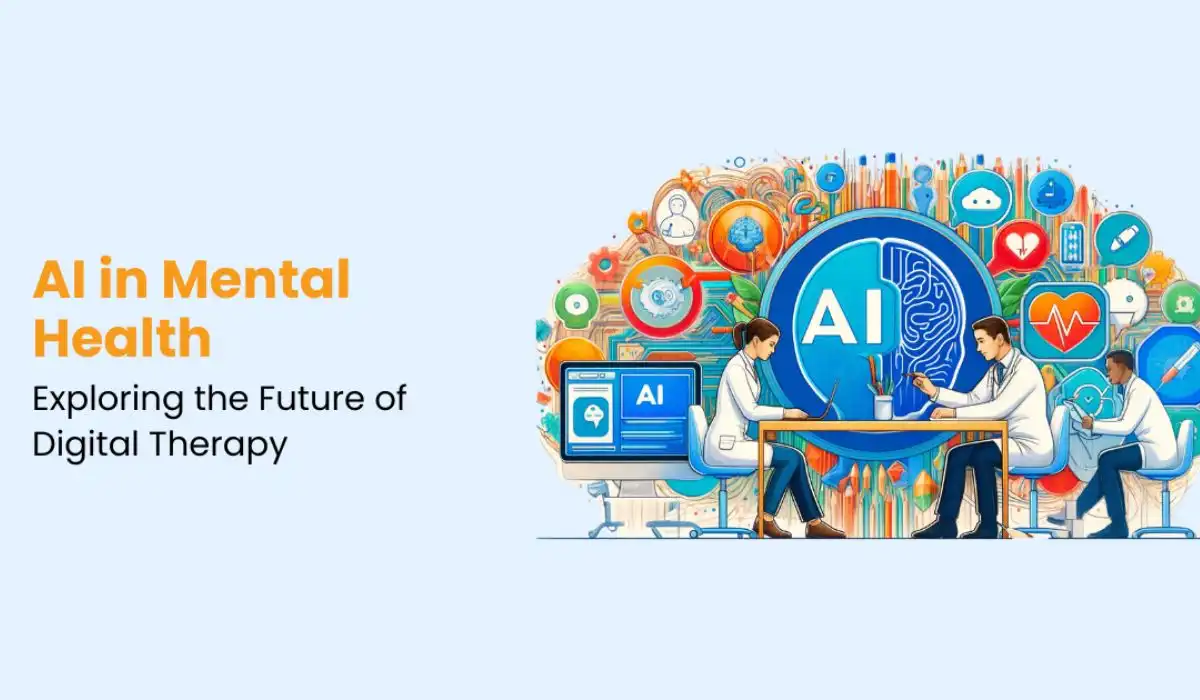In 2025, mental health is no longer a taboo or a luxury—it’s a priority. With rising awareness, increased digital connectivity, and post-pandemic shifts in how we perceive emotional well-being, India is witnessing a mental health revolution. A major driver of this transformation? Artificial Intelligence (AI) and virtual support systems.
Today, AI-powered therapy tools and virtual support groups are breaking barriers of stigma, cost, and accessibility—bringing mental healthcare to anyone with a smartphone and an internet connection. Whether you’re a student dealing with exam stress, a young professional navigating career anxiety, or a parent managing emotional burnout, this article will guide you through the future of mental health and how to benefit from it.
Why Mental Health Matters More Than Ever in 2025
India, a country of over 1.4 billion people, faces a mental health crisis. According to WHO, 1 in 7 Indians suffers from mental disorders like depression, anxiety, or substance abuse. Yet, access to affordable and stigma-free care remains limited.
Key Challenges:
- Shortage of mental health professionals (less than 1 psychiatrist per 100,000 people in India)
- Stigma around seeking therapy, especially in small towns and rural areas
- Rising digital stress due to overexposure to screens, social media, and 24×7 work culture
This is where technology steps in to bridge the gap.
AI-Powered Therapy: Your Personal Digital Mental Health Coach
Artificial Intelligence has found a meaningful role in healthcare—and mental wellness is no exception. AI-powered therapy platforms use natural language processing (NLP), chatbots, and cognitive behavioral algorithms to offer real-time emotional support.
What Is AI Therapy?
AI therapy is a digital tool that simulates a conversation with a therapist using machine learning. These systems are trained to:
- Recognize emotional triggers and mood patterns
- Offer guided mental health exercises
- Provide CBT-based (Cognitive Behavioral Therapy) feedback
- Track mental well-being over time
Popular AI Mental Health Platforms in 2025:
- Wysa (India): An AI-driven “empathetic penguin” that offers coping tools and 24×7 anonymous support
- Woebot (Global): Uses evidence-based therapy and conversational AI for emotional guidance
- Replika: An AI friend that helps users deal with loneliness, anxiety, and stress through daily chats
Real-World Example: A working mother in Mumbai uses Wysa every morning to do quick breathing exercises and track her mood—saving her time and offering mental relief before starting the day.
Virtual Support Groups: Digital Safe Spaces for Shared Healing
In the digital era, healing is no longer confined to clinics. Virtual support groups have emerged as powerful platforms where individuals share, listen, and support each other—without judgment.
What Are Virtual Support Groups?
These are online communities (via apps, Zoom, WhatsApp, or dedicated platforms) where people with similar mental health challenges connect to:
- Share personal experiences
- Get peer advice
- Feel less alone in their journey
Types of Support Groups Gaining Popularity in India:
- Student mental wellness circles (especially around exam pressure and career anxiety)
- Parenting and postpartum support communities
- Addiction recovery networks
- Grief and loss sharing groups
Stat Insight: According to a 2024 survey by YourDOST, over 58% of Indian users feel more comfortable discussing mental health online than face-to-face.
Benefits of AI Therapy & Virtual Mental Health Support
The combination of AI and virtual group therapy is powerful—and here’s why it’s working, especially for Indian users:
1. Affordable Access
Many AI apps are free or subscription-based at a fraction of the cost of traditional therapy.
2. Anonymity & Privacy
Users can share freely without fear of judgment, a major hurdle in Indian society.
3. 24×7 Availability
Unlike human therapists, AI bots are always available—even at 3 AM during a panic attack.
4. Language & Cultural Adaptability
Some platforms offer support in Indian languages, making therapy more inclusive.
Challenges and Ethical Considerations
While AI therapy is promising, it’s not without concerns:
- Not a replacement for clinical care: AI cannot handle suicidal ideation, complex trauma, or medication needs.
- Data privacy issues: Mental health data is sensitive. Users must choose platforms that follow strict encryption and privacy policies.
- Risk of emotional dependency: Some users may overly rely on bots rather than seeking human connection or therapy when truly needed.
Tip: Use AI and virtual groups as supplements, not substitutes, to professional care.
How to Get Started with Digital Mental Health Support
If you’re new to this space, here’s a simple roadmap:
Step-by-Step Guide:
- Download a mental health app like Wysa or MindPeers
- Set clear goals: Reduce stress, improve focus, track mood
- Join a trusted support group (Telegram, Facebook, or app-based)
- Track your emotional patterns weekly
- Know when to seek human help (consult therapists when issues persist)
The Future Is Hybrid: Tech + Human = Better Mental Health
By 2030, experts predict a hybrid model of mental health care—where AI handles day-to-day emotional check-ins, and therapists focus on complex, human-centered support. India’s young, digital-savvy population stands to benefit the most from this evolution.
As mental health awareness spreads through schools, colleges, and workplaces, AI-powered support systems are becoming a lifeline for the modern Indian.
Read Also : Healthy Eating 2.0: Plant-Based, Tech-Driven, and Personalized Nutrition
Final Thoughts
The future of mental health is inclusive, intelligent, and deeply personal. With the rise of AI therapy and virtual support groups, India has an opportunity to close the mental healthcare gap—for millions.
If you’ve ever felt lost, overwhelmed, or simply need someone to “talk” to—remember: help is not just available, it’s at your fingertips.
Take the first step. Breathe. Talk. Heal.





